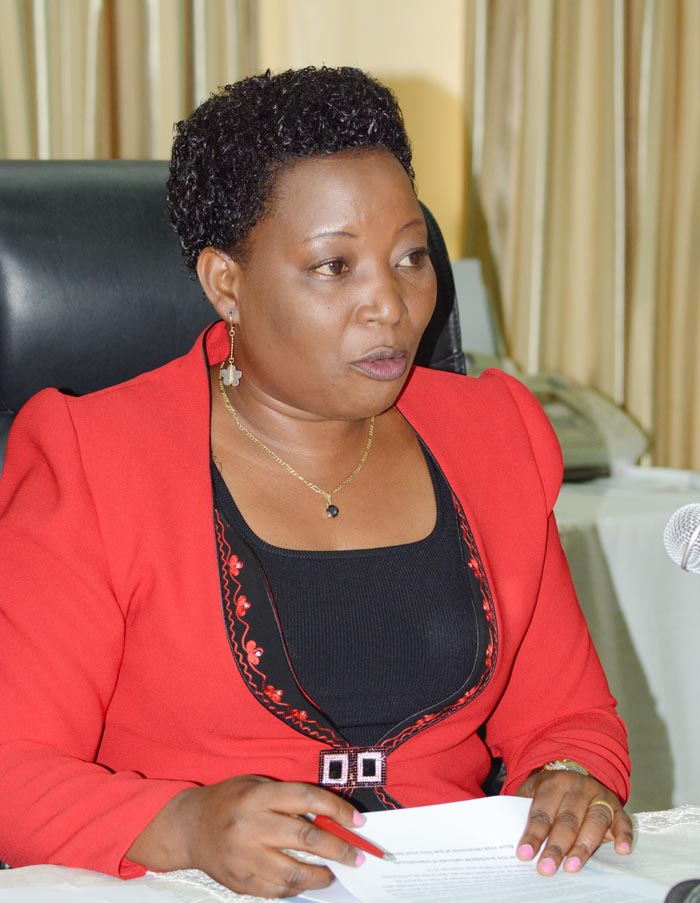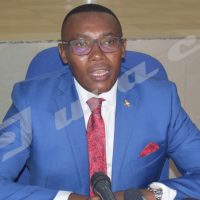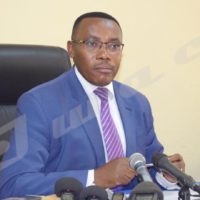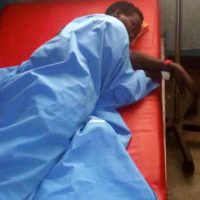The promotion and protection of children’s rights are not ensured entirely. The Ministry of National Solidarity, Gender and Human Rights, is aware of the issue and has elaborated on some issues that need to be overcome.-By Diane Uwimana
“One hundred children out of one hundred of the expected street children have been withdrawn from the street in 2014,” reported Godeliève Nininahazwe, the Minister of National Solidarity, Gender and Human rights.
She indicates that those street children have been given schooling, received a kit of reinsertion and reunited with their respective families.
According to Aimable Barandagiye, the Representative of the Forum of the Associations defending children’s rights and protection (Fenadeb), the number of street children withdrawn by the Ministry from the street is very low. “According to the survey conducted by the Ministry of Solidarity and Fenadeb, 3253 street children were identified, among them 2261 in Bujumbura, 411 in Ngozi and 191 in Gitega Province,” clarifies Barandagiye.
Indeed, the Burundian government in January 2014 adopted the National strategy of prevention and fight against the occurrence of street children.
“The implementation of that strategy is not yet ready due to the lack of funds – another BIF five billion is needed to reinsert and support all the street children” claims Barandagiye.
Barandagiye notes that successful reinsertion must be carried out considering prevention, economic alternative in families by creating generative income activities and assisting the street children according to their needs.
“Child protection committees to involve local communities”
In order to promote and protect children’s rights, the community responsibility has been organized in child protection committees (CPE) on all levels. “Out of 2415 child protection committees (CPE) created in different provinces, only 2270 CPE have been supported and equipped,” adds Nininahazwe.
Nininahazwe acknowledges that members of CPE have been trained on children’s rights and protection.
Barandagiye states that the CPE that are present in the five provinces Kayanza, Muyinga, Gitega, Ngozi and Kirundo play an important role in defending and protecting street children.
“We are aware that these committees are very expensive to put in place but they contribute very significantly to the protection of the rights of children. The Ministry can extend them in other provinces and call upon partners to intervene in that domain,” finishes Barandagiye.
The Minister recognizes that challenges constrain the progress of the strategy due to the lack of funding. “More medical assistance is required by vulnerable people, but the lack of funds is still a huge challenge,” says Godeliève Nininahazwe.
In the coming year, the Ministry plans to withdraw and train 100 street children and make a follow-up of promotion and protection of rights of children and their respective families.
————————————————————————————————————————————–
From 12 to 30 January 2015, the UN Committee on the Rights of the Child will meet in dual chambers at the “Palais” Wilson in Geneva. Ten countries including Cambodia, Colombia, Dominican Republic, Gambia, Iraq, Jamaica, Mauritius, Sweden, Switzerland, Turkmenistan , Tanzania and Uruguay are reviewing the promotion and protection of children’s rights under the provisions of the Convention on the Rights of the Child and its Optional Protocols.
Aimable Barandagiye mentions that the countries were targeted whilst Burundi reported each year the current situation on children’s rights at the UN Child rights.




















 IWACU Open Data
IWACU Open Data

